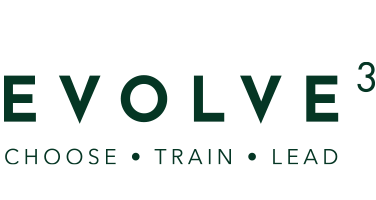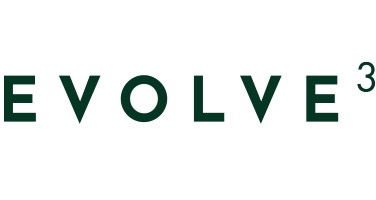
14 Jan Questions to assess a Head Chef candidate’s profit control ability
Choosing the right head chef requires careful assessment of their attitudes, skills and knowledge. If you expect your head chef to manage a profitable kitchen, you need to look beyond their team leadership ability, culinary creativity, cooking skills & experience. There’s plenty of highly skilled chefs that will produce excellent product but might send you broke at the same time.
How do you assess the commercial attitudes of a head chef candidate? Commercial attitudes encompass financial acumen, business acuity, and a profitability mindset. In other words, someone who runs your kitchen as if it was their own business.
If you’re not sure how to structure questions to assess commercial attitudes, I find it helpful to begin questions with this phrase: ‘if I asked you to identify a . . . ‘then, insert the relevant topic, such as: ‘if I asked you to identify a food cost issue in my kitchen, what steps would you take, in what order of priority?’
The candidate’s answer to this type of question will often reveal quite quickly whether they have a positive commercial attitude towards cost control. You can then ask more detailed follow-up questions to really delve into the extent of their knowledge, skills and experience in this area. Any assertions made by the candidate should be carefully reference checked with previous employers.
Here are a few more questions to consider asking the next time you’re interviewing for a head chef:
What are the most volatile kitchen costs a head chef must control to ensure profitability?
If the candidate doesn’t nominate wage costs first, I’m generally concerned. In most cases, tight control over wages is the biggest factor affecting profitability, followed by food, then other overhead costs.
If I told you your wages were running 5% above budget (as a percentage of revenue), what steps would you take to bring them back into line, in order of priority?
This type of question can indicate how well trained your candidate is or to what degree they’ve been expected to manage wage costs in previous roles. Poorly trained senior chefs will generally give you one option – cut the roster – whereas a commercially astute, well-trained chef should be able to list up to 8 factors they would investigate.
If I asked you to set-up best practice management systems to control food costs in the kitchen, what would you recommend?
This type of question can indicate how well trained your candidate is or what level of management systems they’ve been exposed to in previous roles.
A well-trained, commercially minded senior chef should be able to outline and clearly explain a range of food cost control strategies they would require including: the food offer/menu brief; operational budget, including revenue projections, wage & food cost targets, cap-ex; supplier & product specifications; purchasing, goods receipt, stock control & storage guidelines; standardised recipes, costings, production par levels & portion controls etc.
If I asked you to set-up a goods receipt system for kitchen deliveries, what steps would be required to ensure it was effective?
This question gauges to what level the candidate understands the critical importance of ensuring that you’re getting exactly what you’re paying for. It should also indicate whether the candidate understands the importance of staff training, proper cross-checking, shift leadership, and keeping appropriate records, all necessary when setting up an effective goods receipt system.
Can you share an example of a menu revamp you implemented to increase profitability?
Being able to adapt menus to ensure profitability requires an ability to analyse the current offer and make informed decisions that balance a respect for the food brief and market level with awareness of current trends. Look for candidates who have successfully revamped menus to maximise profitability, such as incorporating high-margin items, optimising ingredient utilisation, or introducing seasonal specials.
How have you built and maintained relationships with suppliers?
This question examines the candidate’s ability to negotiate and manage relationships with vendors. An effective head chef should prioritise obtaining quality ingredients at competitive prices. Seek responses that highlight their supplier selection process, negotiation skills, and efforts to foster long-term partnerships.
Have you developed and managed a budget for a kitchen?
Understanding budgeting and financial planning is crucial for a head chef. Inquire about their experience in creating and managing budgets, including cost projections, revenue analysis, and labour expenses. Their ability to balance financial constraints while maintaining culinary excellence is important.
How do you ensure consistency in food quality and presentation across the kitchen?
Consistency is vital for commercial success. Look for candidates who emphasize standardisation, effective communication, and systemised quality control measures to ensure consistency. They should also demonstrate an understanding of how consistent food offerings contribute to customer satisfaction and profitability.
Can you describe a time when you identified and capitalised on a new business opportunity?
A head chef’s commercial attitude should encompass the ability to identify and seize business opportunities. Seek examples where the candidate introduced new revenue streams, collaborated on cross-promotions, or implemented successful marketing initiatives to attract new customers.
Take-aways:
Recruiting a head chef with strong commercial attitudes is crucial for the success of any food establishment. Asking these types of interview questions can help assess a candidate’s financial acumen, business savvy, and overall commercial attitudes. Don’t just focus on the quality of their creative output. Remember to evaluate their ability to balance culinary excellence with profitability, develop and maintain a strong team, foster supplier relationships, and identify and seize business opportunities. A head chef who excels in these areas will play a pivotal role in driving the commercial success of your establishment.
To learn more about kitchen profitability strategies, consider attending our Kitchen Profitability Masterclass. To strengthen your interviewing and questioning techniques, our 2-day How To Choose workshop provides practical mentoring & guidance in these areas.



